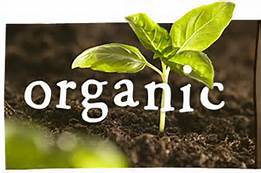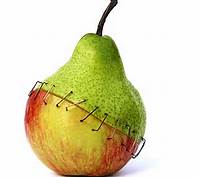|
The term "Organic" refers to the way crops and livestock are grown and processed. Specific requirements must be met and maintained in order for products to be labeled as 'organic'. Organic crops must be grown in safe soil, have no modifications and must remain separate from conventional products. Farmers are not allowed to use synthetic pesticides, petroleum-based fertilizers and sewage sludge-based fertilizers. Organic livestock must have access to the outdoors and be given organic feeds. No antibiotics, growth hormones or animal-by-products.
|
Genetically Modified Foods, also called GM foods or biotech foods, come from genetically modified organisms (GMOs), such as engineered crops or fish. Such organisms have had very precise changes made to their DNA. The first genetically modified food was Calgene's Flavr Savr Delayed Ripening Tomato. Most GM foods are plant products such as Soybean, Corn, Canola, Rice and Cotton Seed Oil. In the USA, GMO crops are found in over 80% of packaged foods. They are also added to processed foods as oils, sweeteners and soy proteins.
|
Overall, Organic foods are better for us because:
- as a natural defense mechanism in the absence of pesticides, they develop 'phenols' which are believed to be antioxidants that can protect people against cancer and heart diseases.
- there are much more micro-arthropods and earthworms which provide nutrients and protect crops against disease.
- promotes crop biodiversity
- extended crop rotation help conserve soil, water and biological resources and reduce insect, disease and weed problems.
- recycling of livestock waste reduces pollution.
- less fossil energy used which reduces the amount of carbon dioxide released into the atmosphere.
- they contain higher levels of Vitamin C, trace minerals and antioxidants phytonutrients.
- money stays within the community and strengthens the local economy.
- they are fresher because they are harvested when they are ripe and full of flavor.
- no pesticides, chemicals or drug used and so, none consumed.


